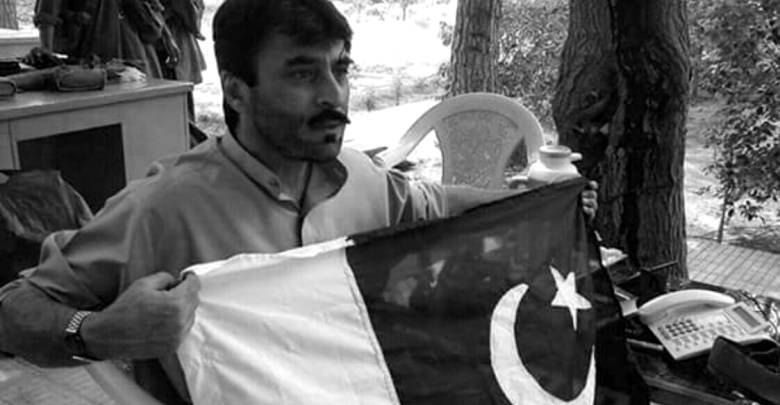
At least 130 people died and over 150 were injured when a corner meeting of Balochistan Awami Party (BAP) was targeted by a suicide bombing in Mastung on Friday.
Among those killed is Siraj Raisani, the younger brother of former Balochistan Chief Minister Aslam Raisani, who was going to contest the upcoming elections from PB-35.
The Mastung bombing, claimed by the Islamic State (ISIS) is the deadliest attack of 2018 anywhere in the world. It is the deadliest attack in Pakistan since the APS massacre of 2014.
ISIS in Pakistan
As the world’s biggest terror umbrella continued to suffer defeats in Iraq and Levant, it found refuge in the Af-Pak region, where there Islamic State of Khorasan (ISK) was announced in 2014.
Even though literature and graffiti paying allegiance to the Islamic State had already sprung up in the country, it formally announced its arrival in Pakistan on May 13, 2015 when eight militants affiliated with the group raided an Ismaili bus near Karachi’s Safoora Chowrang and killed 46 people.
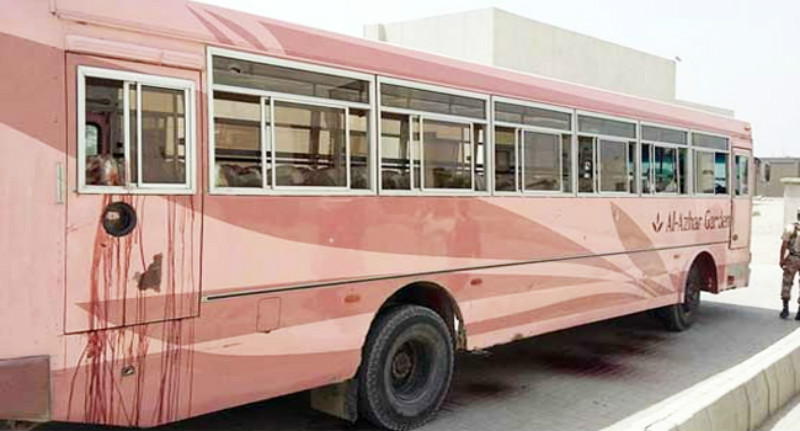
Over the next three years, the ISK focused most of its attacks in Afghanistan, where the Islamic State has been responsible for scores of terror raids.
While ISIS attacks in Afghanistan have doubled over the past year with its base in Nangarhar, the group has gradually solidified its footprint in Balochistan and northern Sindh as well.
Prior to the Friday’s mass bloodshed, the deadliest attack since the APS attack, the Sehwan bombing in February 2017 that killed 88 people, was also orchestrated by the Islamic State.
Ideological targeting
Eight months after the Sehwan attack another Sufi Shrine was targeted by ISIS in Jhal Magsi. This is demonstrative of the Islamic State’s ideological violence, wherein religious minorities and non-Muslims are often their primary target.
Hence, in addition to their endeavor to obliterate emblems of Sufi Islam, Quetta’s Shia Hazara and Christians have fallen prey to the Islamic State’s terror raids.
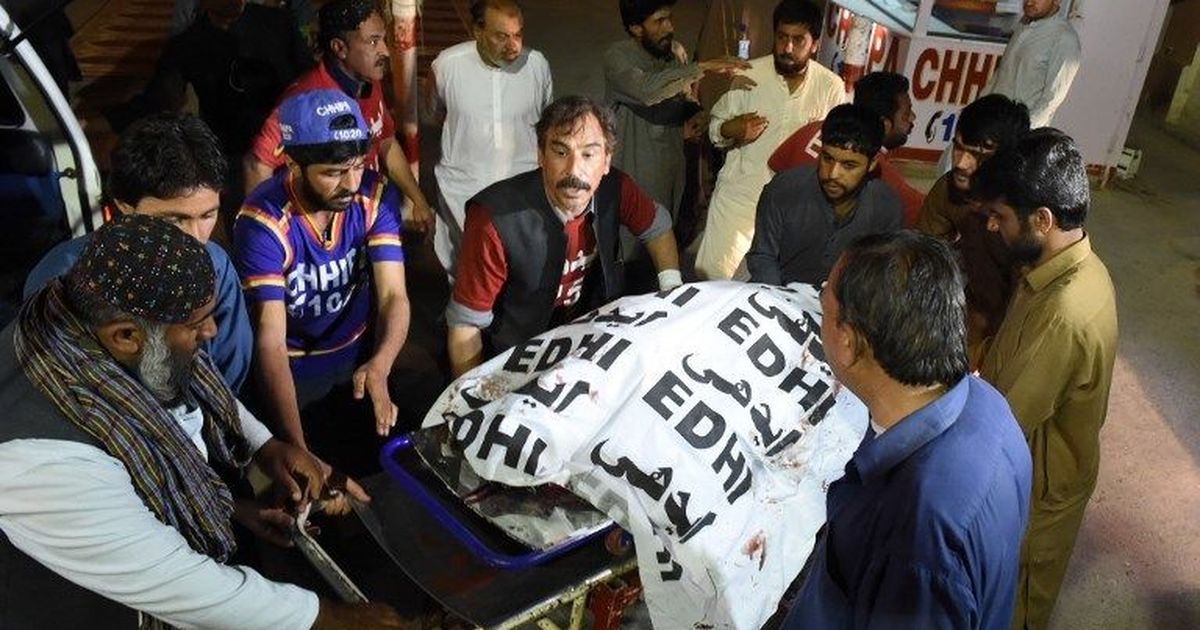
A surge in these attacks in April this year prompted a hunger strike by Hazara activists, with the Army Chief having to come to reassure the families of the victims, conceding the complicity of rogue elements within the military ranks who abet such attacks.
These ideological ambitions allow the Islamic State to ally itself with the likes of Lashkar-e-Jhangvi (LeJ) and fractured remnants of the Pakistani Taliban.
Military leadership’s denial
Despite the surge in ISIS orchestrated violence, the military leadership’s position has been unflinching: that the group does not even exist in Pakistan.
A day after Easter Monday, when four Christians were killed in an ISIS attack in Quetta, Inter-Services Public Relations (ISPR) Director General (DG) Major General Asif Ghafoor said in a press conference that “there is no presence of Daesh (ISIS) in Pakistan.”
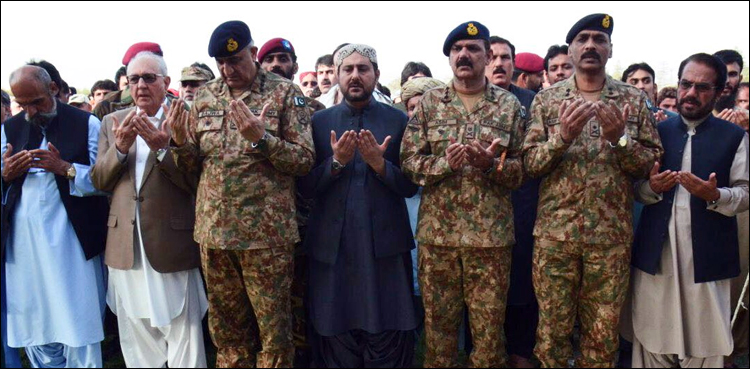
While the Army spokesperson doesn’t entertain a detailed discussion on ISIS in his pressers, the rationale within the GHQ in denying the group’s existence in Pakistan – similar to when the civilian leadership exhibited similar denial during the Islamic State’s initial days in the region – is that the core members of the original group aren’t directly behind the attacks taking place in the country.
However, the idea that ISIS doesn’t exist because it is the local foot jihadists carrying out these attacks, is actually a self-fulfilling prophesy that allows more of these radical Islamists to gravitate towards the Islamic State’s umbrella.
No counter-narrative
When the group’s existence is denied by the state, what it also does is rid itself of responsibility of dealing with the threat. For, if ISIS doesn’t even exist in Pakistan, why would the state have to do anything to counter it?
This approach is murderously masochistic, especially while dealing with a group like the ISIS, whose claims of establishing a global caliphate wooed scores of people in the West towards its radical Islamist utopia.
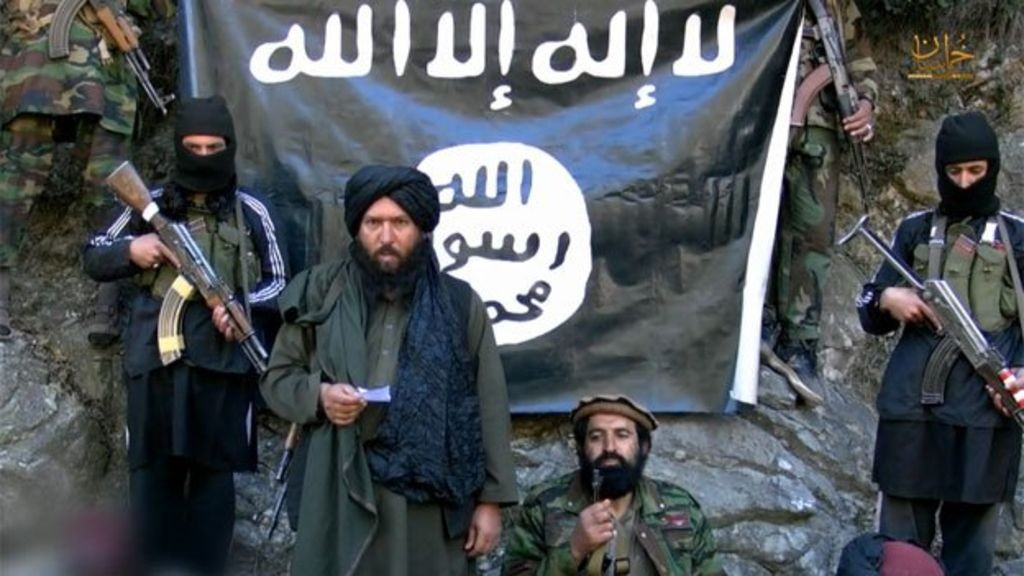
Hence, even though the Pakistani Taliban have also claimed the Mastung bombing, and the LeJ Al-Alami has carried out the classic ISIS ‘roadside lone attacker’ raids, the way to go about countering this unified jihadist threat is to acknowledge the ideological overlapping and drive home a counter-narrative.
Renounce jihad
What, therefore, is needed is the state’s renunciation of armed jihadist and denunciation of the very idea of a global caliphate.
This is the single greatest pull for ISIS, which attracts a wide array of radical Islamist groups and individuals, not only giving the lone jihadists a sense of purpose, but also providing depleting militant groups a new lease of life to continue their radical agenda under an internationally recognised banner.
Even so, with the military relying on the jihadist ideologues as strategist assets to be unleashed in cross-border raids, and the civilian leadership needing Islamist rhetoric to keep hold of their vote banks, a policy shift definitely isn’t forthcoming.
And so, the ideological push that allowed ISIS to target a political rally ahead of elections won’t be countered, with none of the power brokers willing to concede the Islamist space that invariably impacts the polling patterns in our neck of the woods.
Among those killed is Siraj Raisani, the younger brother of former Balochistan Chief Minister Aslam Raisani, who was going to contest the upcoming elections from PB-35.
The Mastung bombing, claimed by the Islamic State (ISIS) is the deadliest attack of 2018 anywhere in the world. It is the deadliest attack in Pakistan since the APS massacre of 2014.
ISIS in Pakistan
As the world’s biggest terror umbrella continued to suffer defeats in Iraq and Levant, it found refuge in the Af-Pak region, where there Islamic State of Khorasan (ISK) was announced in 2014.
Even though literature and graffiti paying allegiance to the Islamic State had already sprung up in the country, it formally announced its arrival in Pakistan on May 13, 2015 when eight militants affiliated with the group raided an Ismaili bus near Karachi’s Safoora Chowrang and killed 46 people.

Bus carrying Ismaili Muslims attacked by ISIS at Karachi's Safoora Chowrangi
Over the next three years, the ISK focused most of its attacks in Afghanistan, where the Islamic State has been responsible for scores of terror raids.
While ISIS attacks in Afghanistan have doubled over the past year with its base in Nangarhar, the group has gradually solidified its footprint in Balochistan and northern Sindh as well.
Prior to the Friday’s mass bloodshed, the deadliest attack since the APS attack, the Sehwan bombing in February 2017 that killed 88 people, was also orchestrated by the Islamic State.
Ideological targeting
Eight months after the Sehwan attack another Sufi Shrine was targeted by ISIS in Jhal Magsi. This is demonstrative of the Islamic State’s ideological violence, wherein religious minorities and non-Muslims are often their primary target.
Hence, in addition to their endeavor to obliterate emblems of Sufi Islam, Quetta’s Shia Hazara and Christians have fallen prey to the Islamic State’s terror raids.

A Christian Pakistani's dead body being carried to the hospital. Four Christians had died in an attack on Easter Monday in Quetta.
A surge in these attacks in April this year prompted a hunger strike by Hazara activists, with the Army Chief having to come to reassure the families of the victims, conceding the complicity of rogue elements within the military ranks who abet such attacks.
These ideological ambitions allow the Islamic State to ally itself with the likes of Lashkar-e-Jhangvi (LeJ) and fractured remnants of the Pakistani Taliban.
Military leadership’s denial
Despite the surge in ISIS orchestrated violence, the military leadership’s position has been unflinching: that the group does not even exist in Pakistan.
A day after Easter Monday, when four Christians were killed in an ISIS attack in Quetta, Inter-Services Public Relations (ISPR) Director General (DG) Major General Asif Ghafoor said in a press conference that “there is no presence of Daesh (ISIS) in Pakistan.”

Pakistan army officials at Siraj Raisani's funeral
While the Army spokesperson doesn’t entertain a detailed discussion on ISIS in his pressers, the rationale within the GHQ in denying the group’s existence in Pakistan – similar to when the civilian leadership exhibited similar denial during the Islamic State’s initial days in the region – is that the core members of the original group aren’t directly behind the attacks taking place in the country.
However, the idea that ISIS doesn’t exist because it is the local foot jihadists carrying out these attacks, is actually a self-fulfilling prophesy that allows more of these radical Islamists to gravitate towards the Islamic State’s umbrella.
No counter-narrative
When the group’s existence is denied by the state, what it also does is rid itself of responsibility of dealing with the threat. For, if ISIS doesn’t even exist in Pakistan, why would the state have to do anything to counter it?
This approach is murderously masochistic, especially while dealing with a group like the ISIS, whose claims of establishing a global caliphate wooed scores of people in the West towards its radical Islamist utopia.

ISIS leader Wilayat Khorasani
Hence, even though the Pakistani Taliban have also claimed the Mastung bombing, and the LeJ Al-Alami has carried out the classic ISIS ‘roadside lone attacker’ raids, the way to go about countering this unified jihadist threat is to acknowledge the ideological overlapping and drive home a counter-narrative.
Renounce jihad
What, therefore, is needed is the state’s renunciation of armed jihadist and denunciation of the very idea of a global caliphate.
This is the single greatest pull for ISIS, which attracts a wide array of radical Islamist groups and individuals, not only giving the lone jihadists a sense of purpose, but also providing depleting militant groups a new lease of life to continue their radical agenda under an internationally recognised banner.
Even so, with the military relying on the jihadist ideologues as strategist assets to be unleashed in cross-border raids, and the civilian leadership needing Islamist rhetoric to keep hold of their vote banks, a policy shift definitely isn’t forthcoming.
And so, the ideological push that allowed ISIS to target a political rally ahead of elections won’t be countered, with none of the power brokers willing to concede the Islamist space that invariably impacts the polling patterns in our neck of the woods.
